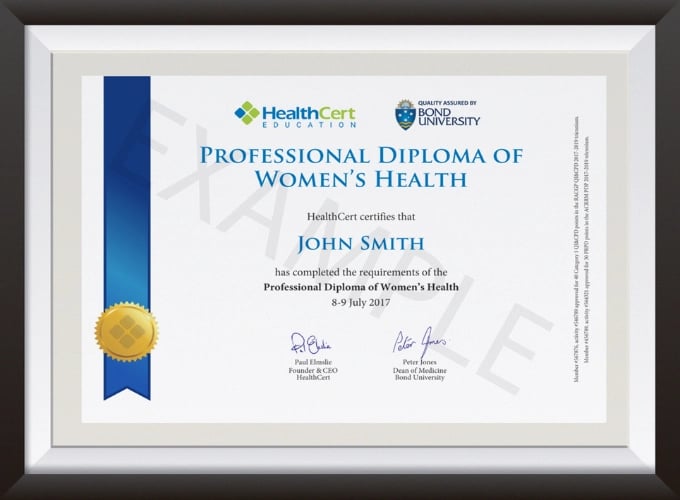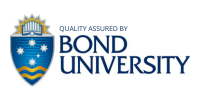Anal-rectal conditions are a frequent part of general practice, yet many GPs feel less confident...
.jpg?height=200&name=HCE%20HubSpot%20blog%20images%20600x350%20(50).jpg)

Delivered by leading experts in the field, the online Professional Diploma of Women’s Health course equips medical professionals with a comprehensive understanding of women’s health issues commonly seen in primary care.
- Acquire expert-level knowledge in women’s health issues such as vaginal prolapse, incontinence, family planning, pregnancy complications, eating disorders, and cancer.
- Improve patient outcomes by managing common women’s health issues in general practice.
- This course is for physicians, nurse practitioners, and degree-qualified nurses.
- CPD-accredited and university-assured.
New to Women’s Health or not ready to commit to the full certificate?
Start with the Primary Certificate of Menopause & Women's Health: a focused, three-module course covering menopause, post-menopause, and hormonal health ($495).
You might also be interested in the Advanced Workshop of Intrauterine Systems.
- Learn about incontinence symptoms, diagnosis, prevalence, causes, and risk factors.
- Manage symptoms of menopause, sexual health difficulties, and women's psychological issues.
- Expertly assist with family planning, pregnancy complications and related issues.
- Manage risk of familial breast cancer and ovarian cancer.
- Support patients with anorexia, bulimia, and other eating disorders.
Get unlimited access to all course content, additional learning materials, ongoing post-course support, and more.
This module discusses urinary incontinence and pelvic organ prolapses. Content outlines the types of incontinence, symptoms, diagnosis, prevalence, the causes and the risk factors. Prolapses covered are the anterior and posterior vaginal walls, cervix or uterus and the apex of the vagina. Managing these presentations includes taking a detailed medical and obstetric history, investigating risk factors, physical examination and further investigation options. Questionnaires are provided as a guide for these consultations. Changes are discussed as well as continence aids. Various treatment options including lifestyle interventions, physical therapies, bladder training, medicines and continence aids are outlined. Surgical intervention and the associated risks are considered.
This module outlines the definition of complementary medicine according to WHO and the RACGP. Three main topics include how to approach of the topic of complementary medicine with your patients, how to review and discuss the evidence for complementary medicine with your patients, and the use of some clinical scenarios to put these strategies into practice. This module gives two scenarios of patients with urinary incontinence and with pregnancy-induced emesis. In both cases the patients prefer “natural” options rather than traditional medication. The module concludes that the general practitioner should advise patients of all potential treatments for their condition, including benefits and risks. The general practitioner should not recommend any treatment that does not have reasonable evidence for its effectiveness.
This module commences with the description of the different phases of the menstrual cycle and natural family planning methods options. These include fertility awareness, lactational amenorrhoea and withdrawal methods, their effectiveness, advantages, disadvantages and contraindications. Unit two outlines contraceptive needs in women with intellectual disability including legal considerations. Unit three addresses the complexities for women who are culturally and linguistically diverse, including the clinical challenges associated with this group. Statistics, factors influencing contraceptive choices and GP management recommendations are included. Key points of diagnosis, investigations, management, expected response and potential side effects are suggested. This unit also lists resources including public funded interpreter information. Information is provided for GPs working with ATSI women. At the end of this module an overview of new contraceptive products is given.
This module discusses advanced maternal age pregnancies and potential complications for the mother and the child. It examines fertility decline and possible early pregnancy complications including spontaneous abortion, ectopic pregnancy, chromosomal abnormalities and congenital malformations. Late pregnancy complications discussed include hypertension, pre-eclampsia, gestational diabetes mellitus, placental complications and increased risk of caesarean sections. Possible foetal complications including low birth weight, preterm delivery and stillbirth are included and then leads into definitions of twin pregnancies and possible maternal and foetal complications. Antenatal care, timings and mode of birth are included. Unit three defines pre-eclampsia, identifying women at risk, the effects on the body, and the pathophysiology and management of this condition including the complexities of managing this condition in rural areas. Pregnancy-related skin concerns are reviewed including skin pigmentation, stretch marks and thinning of hair. Benign and sinister specific dermatoses of pregnancy are described and examples are shown.
This module discusses advanced pregnancy complications including how the immune system may respond to possible infections in pregnancy. These infections include chlamydia, syphilis, Hep B/C, HIV, GBS, rubella and varicella, HSV, listeria, parvovirus, cytomegalovirus, toxoplasma and COVID- 19. Clinical management of these conditions is outlined. The causes of antepartum haemorrhage including risk factors and clinical management of this condition are outlined. Preterm birth/labour (PTL) discusses the causes, risk factors, risk reduction, assessment and management of this condition. Vaginal/perineal tears and episiotomies, including definitions, risk factors and tear-associated morbidity are described. Episiotomy incisions are outlined and when this procedure should or should not be performed, including possible complications. The content outlines faecal and anal incontinence after pregnancy and childbirth including the definition, assessment history, examination and management of this condition.
This module discusses genetics including information, counselling and statistics for hereditary, familial and sporadic distribution of cancer. The role of genes is also examined. Unit two looks at hereditary breast and ovarian cancer and the associated genes. Content includes referral guidelines, BRCA carrier risks, genetic counselling, identifying, and managing patients who are at high risk of hereditary cancers. Genetic testing information includes advances, testing processes and possible funding options, consent requirements, possible results and genetic variant classifications. The module covers management strategies for high-risk breast and ovarian cancer patients including psychological and lifestyle choices, communicating genetic results and informing family members. Counselling considerations including pros and cons for reproductive options, prenatal testing, pre and implantation genetic diagnosis and the role of IVF are included.
This module focuses on eating disorders including anorexia nervosa, bulimia nervosa, binge eating disorder and other specified feeding and eating disorders. The role of the medical practitioner is discussed including advocacy for changing societal norms and healthy lifestyle perspectives and targeting at risk individuals. High risk groups are noted. The module provides screening tools to be used in conjunction with behavioural, psychological and physical signs – a comprehensive list of signs for these categories are listed. Assessment information and guides are provided including when immediate referral is appropriate. Patient engagement may be challenging and the suggested approach by the clinician is included. Treatment goals and guidelines are given including suggested multidisciplinary team involvement, medical practitioner management, pharmacotherapy and eligibility criteria.
This module focuses on premature ovarian insufficiency (POI). The module commences with definitions of early and premature menopause including risk factors and causes of spontaneous POI. Iatrogenic POI caused by chemotherapy, radiotherapy or surgery. Information about clinical presentations of POI, diagnosis criteria, patient history, examinations, investigations, and ongoing monitoring are listed in unit two. Health consequences may include psychological distress, osteoporosis, cardiovascular disease, cognitive impairment, sexual dysfunction and other health concerns. The management of POI from initiating care and coordinating care may include a multidisciplinary approach. Information is provided on managing symptoms of menopause, sexual health difficulties and psychological issues. When managing patients with this condition, consideration needs to be given regarding prevention of bone loss, osteoporosis and prevention of cardiovascular disease.
As the pinnacle of women's health training at HealthCert Education, the Professional Diploma of Women's Health goes beyond traditional coursework to deliver a truly immersive, practice-enhancing experience. In addition to course activities, a standout feature of this program is the clinical audit, where participants submit and analyse their own real-world cases — a powerful opportunity to directly apply your learning. This hands-on component, combined with an in-depth literature review of journal articles, ensures participants leave with both academic rigour and practical excellence.

General practitioner and GP supervisor
Associate Professor Debbie Kors is the founder and joint owner of a private teaching general practice in Port Macquarie, Australia. She works there as a general practitioner and GP supervisor of GP registrars and medical students.
A/Prof Kors is a passionate advocate for the profession of general practice. She is a Conjoint Associate Professor in Primary Health Care at the UNSW Rural Clinical School, Port Macquarie campus and has previously worked as a senior medical educator with North Coast GP Training. In 2010, she was nominated for and won the General Practice Education and Training GP Supervisor of the Year award.
A/Prof Kors holds a MBBS (first class honours), Fellowship of the RACGP, Masters of Family Medicine (clinical), Diploma of the Royal Australian College of Obstetricians and Gynaecologists, Graduate Diploma of Medical Education and a Certificate of Family Planning.

Dr Nelum Dharmapriya was born in Sri Lanka. She graduated from the University of Aberdeen, UK, in 1995 and was a partner at Heaton Norris Medical Centre in Stockport, UK, for seven years. Nelum arrived in Australia in 2009 and established Narangba Doctors in 2012. She is married with two teenage boys and loves to spend time outdoors – running, cycling, travelling and reading.

HGSA-Certified Genetic Counsellor, ACT Genetic Service
Master's in Genetic Counselling
ACT State Representative, Human Genetics for Australasia
Belinda Dopita is an HGSA certified genetic counsellor with over 19 years’ clinical experience. She completed her undergraduate degree at the ANU, and her postgraduate diploma in Genetic Counselling at Melbourne. She worked at the Center for Human Genetics in Boston, USA. After returning to Australia, Belinda completed her Master's in Genetic Counselling studying physician knowledge of newborn screening, while working at The Children's Hospital at Westmead.
Belinda currently works at the ACT Genetic Service in both general and cancer genetics. She supports many cancer support groups and has presented at pink hope information days. Belinda also has a private practice which she founded in 2014. Her private practice has since grown, and she offers a combination of in-person appointments, skype and phone consultations. She is responsible for discussing high risk non-invasive prenatal test (NIPT), and reproductive carrier screening results Australia-wide. She has a particular interest in pre-pregnancy and prenatal genetic counselling as well as genetic testing for genes associated with cancer.
Belinda is the current ACT state representative for the Human Genetics for Australasia and has a long history of service with the HGSA. Having a background in psychology and previously working with children in many areas, she is also interested in genetic counselling of children and young adults.
Belinda has three children which keep her busy; she enjoys horse riding, dining out and any free time she can get.

Fellow of the Royal Australian College of General Practitioners
Bachelor of Medicine Bachelor of Surgery
Bachelor in Sciences (First class Honours in Neuroscience)
Diploma in Child Health
Diploma of the Royal College Obstetricians and Gynaecologists
Diploma of Family Planning & Sexual Health
Dr Evangelia (Valia) Francis is a GP. Dr Francis enjoys all aspects of General Practice but is especially interested in skin medicine, women's health and medicine of the elderly.
Originally from the coastal town of Kavala in Greece, Dr Francis is involved in teaching medical students as a Conjoint Lecturer in the Rural Medical School of Port Macquarie as well as teaching registrars. It is a very fulfilling aspect of her work that has been greatly inspired and supported by the senior educators at her practice.
When not at work, Dr Francis tries to fight waves with surf or paddle boards (so far they always win!), is training hard to become the next MasterChef winner, and enjoys reading books and learning new languages.

Dr Sharon Sykes works in private general practice in Port Macquarie, Australia where she is also a supervisor of GP registrars and of medical students. Dr Sykes served 18 years in the Royal Australian Air Force before becoming a general practitioner. She has a special interest in medical education and has previously worked as a medical educator for North Coast GP Training.
She holds a MBBS, Bachelor of Applied Science (Med Lab Sci) and a Fellowship of the RACGP.
If you are new to Women’s Health or not ready to commit to the full certificate, consider the Primary Certificate of Menopause & Women’s Health: a three-module, low-commitment entry point focused on midlife care for women. Ideal if you are new to this area or want a focused update. Covers menopause, post-menopause, and hormonal health ($495).
$1595
Bundle two courses and save 5%, or three courses and save 10% upon enrolment.
Talk to us about deferred payment options, registrar scholarships and special rates.
*For Australian residents only: Online course prices are shown exclusive of GST. If you are GST-registered, please enter a valid ABN at checkout to ensure GST is not applied. Otherwise, 10% GST will be added at checkout. View our FAQ for more information.


HealthCert courses have become the standard by which you gauge all others.
Dr K. Abolarinwa
Good courses with excellent speakers. I particularly enjoyed the case study scenarios which helped to integrate the knowledge gained.
Dr A. Tucker
This is the pathway to improve your confidence and evolve into the GP you aspire to be.
Dr S. Shinwari
| RACGP Activity Number | ACRRM Activity Number | Activity Title | Education Hours | Performance Hours | Outcome Hours | ||
|---|---|---|---|---|---|---|---|
| 473783 | 38388 | Vaginal Prolapse and Urinary Incontinence | 473783 | 38388 | 4.5 | 6 | 0 |
| 473792 | 38389 | Complimentary Medicine | 473792 | 38389 | 3.5 | 6 | 0 |
| 473801 | 38390 | Family Planning (Advanced 2) | 473801 | 38390 | 4 | 6 | 0 |
| 473805 | 38391 | Pregnancy Complications (Advanced 1) | 473805 | 38391 | 4 | 6 | 0 |
| 473810 | 38392 | Pregnancy Complications (Advanced 2) | 473810 | 38392 | 4 | 6 | 0 |
| 473819 | 38393 | Familial Risk of Breast and Ovarian Cancer | 473819 | 38393 | 5 | 6 | 0 |
| 466872 | 38394 | Anorexia Nervosa and Bulimia Nervosa | 466872 | 38394 | 4 | 6 | 0 |
| 473822 | 38395 | Premature Ovarian Insufficiency | 473822 | 38395 | 4 | 6 | 0 |
| 762946 | 38407 | Clinical Audit of Women’s Health: Menopause and Post Menopause | 762946 | 38407 | 0 | 2 | 19.5 |
| 762963 | 38406 | Clinical Audit of Women’s Health: Pregnancy and Pregnancy Complications | 762963 | 38406 | 0 | 2 | 19.5 |
| 766233 | 32437 | Professional Knowledge, Skills and Networking | 766233 | 32437 | 6 | 0 | 0 |
| Total hours | 39 | 52 | 39 | ||||
View the CPD Hours for all HealthCert Education activities.
The comprehensive, peer-reviewed clinical audit associated with this Professional Diploma exceeds the minimum annual CPD outcome measurement hours.
The Professional Diploma of Women's Health is for physicians, nurse practitioners, and degree-qualified nurses. The prerequisite for this Professional Diploma course is the successful completion of the HealthCert Advanced Certificate of Women’s Health (or a qualification deemed equivalent) and HealthCert also highly recommends successful management of at least 30 cases of women’s health issues prior to enrolment.
Participants do not have to pass an IELTS test but, as the courses are delivered in English, proficiency in listening, reading and writing English is assumed.
Participants will require access to a computer/laptop, an internet connection and a basic level of technology proficiency to access and navigate the online learning portal.
This certificate course meets the minimum 50 hours CPD annual requirement across all three mandatory CPD activity types.
Upon successful completion of the exam, course participants will receive the Professional Diploma of Women's Health, and CPD hours.
This certificate course:
To learn more about the delivery of certificates in Australia and overseas, please visit our FAQs.
Professional Diploma Pathway
This course is the final stage of the Professional Diploma of Women's Health. The education pathway is: Professional Certificate of Women's Health, Advanced Certificate of Women's Health, and Professional Diploma of Women's Health.
You might also be interested in the HealthCert Advanced Workshop of Intrauterine Systems or the Primary Certificate of Menopause and Women's Health.
Postgraduate Pathways
Graduates of the HealthCert Professional Diploma of Women's Health may apply for a scholarship to an online Master degree from our partner in the UK. HealthCert recommends the MSc in Women’s Health which is awarded by University of Buckingham. Please contact our UK partner directly regarding this scholarship: https://www.diploma-msc.com/s/healthcert
Participation in research
HealthCert alumni have opportunities to participate in research projects conducted by leading experts in the field. Research projects and surveys are shared via the HealthCert blog which is available to HealthCert alumni.
This organisation is an RACGP-accredited CPD provider under the RACGP CPD Program.




Don't see your question? Explore other faqs or talk to us.
Fees will vary based on the program and study option selected (fully online vs online + optional practical workshop). Payments can be made upfront or in monthly instalments. Special rates and various payment options are available. GP registrars and doctors in training enjoy a scholarship of up to $500. Talk to us to learn more.
Completion of any HealthCert course or attendance at an event will enable you to access the HealthCert Alumni Program which includes:
HealthCert Education is pleased to issue digital credentials for alumni. Digital credentials are a permanent online record of your successful completion of a HealthCert course and are issued to all course participants in addition to PDF certificates. If you are based in Australia, you also have the option to order a hard copy of your digital certificate for a small additional fee.
The recommended study duration of this certificate course is 102.5 hours, which includes study of the pre-course activities and readings, online lectures, live tutorials, and online assessment. This self-paced course offers the flexibility of 100% online study in your own time, at your own pace, in your own home or office, with no mandatory face-to-face requirements. You are not required to be online at specific times but can view and replay video lectures at your convenience.
All HealthCert courses meet World Federation of Medical Education standards. This certificate course qualifies for CPD hours from the Royal Australian College of General Practitioners (RACGP) and the Australian College of Rural and Remote Medicine (ACRRM) in Australia. It is recognised by the Royal New Zealand College of General Practitioners (RNZCGP) in New Zealand. It is recognised by the Hong Kong College of Family Physicians (HKCFP) in China. It is a self-submitted activity in Dubai and the United Kingdom. It is a self-submitted activity through the College of Family Physicians in Canada. If you live or work outside one of the above-mentioned countries, please contact us on admin@healthcert.com to discuss whether this course can be recognised in your country.
Want to stay up-to-date with the latest case studies, podcasts, free video tutorials and medical research articles pertinent to primary care?
Our Education Advisors can assist you with any queries and tailor our education pathway to suit your current expertise, interests and career goals.